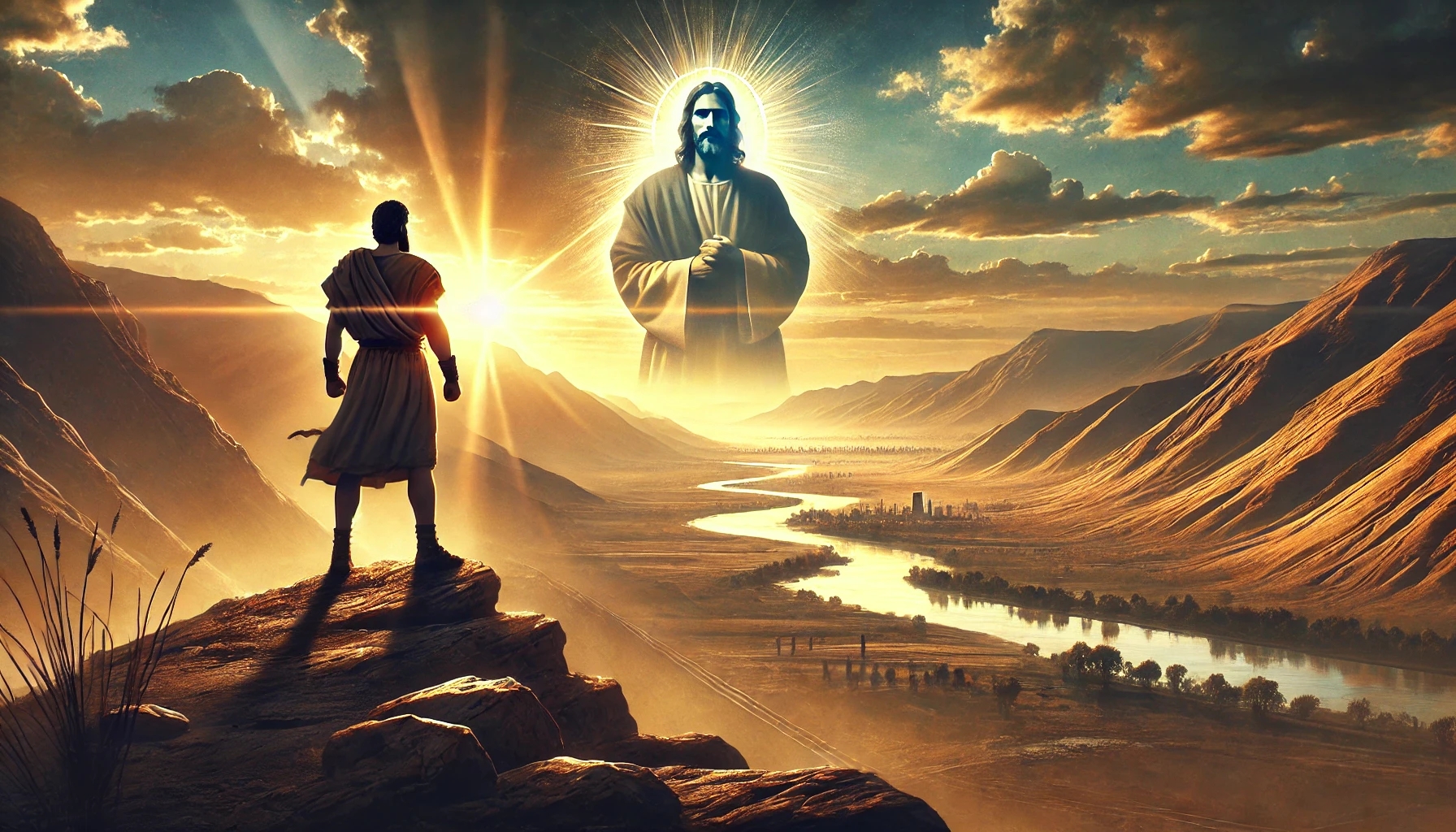Series LESSONS OF FAITH FROM JOSHUA with Pastor Mark Finley
 Lesson 11.Living in the Land
Lesson 11.Living in the Land
Separated yet united – Faith overcomes boundaries
 Introduction
Introduction
Lesson 11 deals with the return of the eastern tribes after fulfilling their military duty and the resulting tension between the tribes of Israel. Although they were geographically separated, spiritual unity remained essential. A misunderstanding about an altar threatened to tear the community apart, but the calm and wise actions of both sides preserved peace. This story emphasizes how important communication, trust, and mutual understanding are for living together as God’s people. It also shows that true unity is not based on physical closeness but on shared faithfulness to God. The lesson challenges us to resolve conflicts in the light of faith and to actively protect the unity of the church.
Content:
 11.1 Commitment
11.1 Commitment
Faithfulness in service – Unity through dedication
The Reubenites, Gadites, and half-tribe of Manasseh showed remarkable commitment by faithfully fighting alongside their brothers, even though their families lived far away on the other side of the Jordan. Their service was not superficial, but lasted many years and involved personal sacrifice. This dedication shows that true service comes from faithfulness to God, not just loyalty to people. Joshua praised their behavior and reminded them to continue following the Lord in the future. Their story demonstrates how spiritual unity can overcome geographical boundaries. If we were to stand together and pray with the same attitude today, relationships within the church could grow stronger and deeper.
 11.2 Accusations…
11.2 Accusations…
Quick judgment – The danger of misunderstanding
The western tribes accused the eastern tribes of turning away from the common faith by building an altar. This accusation was based on an assumption, since the purpose of the altar was unclear and no direct communication had taken place. The conflict shows how quickly a lack of information can lead to mistrust and division. The serious question arises whether the eastern tribes should still be considered part of Israel – a sign of deep tension. Jesus and Paul warn us not to judge others too quickly, because we often do not know their true motives. Even today, misunderstandings in the church are common when we jump to conclusions instead of seeking conversation.
 11.3 Haunted by the past
11.3 Haunted by the past
Carrying history – Lessons from earlier failures
The choice of Phinehas as leader of the delegation was no coincidence – he had already acted decisively during the crisis at Baal-Peor and was known for his zeal for God’s honor. His past shaped his understanding of the serious danger of possible idolatry. The fear of falling back into old sins caused the western tribes to sound the alarm immediately. Yet despite serious accusations, they chose the path of clarification before acting. This shows how important it is to distinguish between justified concern and premature judgement. God’s grace helps us learn from the past without treating others unjustly – because healing does not mean forgetting, but acting more maturely in the light of earlier experiences.
 11.4 A gentle answer
11.4 A gentle answer
Responding with kindness – Unity instead of escalation
The eastern tribes did not react to harsh accusations with anger or defensive emotion, but with a calm, respectful, and deeply faithful explanation. Their response was marked by humility, clarity, and an appeal to God’s truth — a strong example of Proverbs 15:1 in action. Instead of adding fuel to the fire, their thoughtful reaction brought peace into a potentially destructive situation. Especially impressive is that they revealed the motive behind their actions: not rebellion, but a desire for spiritual connection with the rest of Israel. Their answer brought not only clarity, but reconciliation and joy on both sides. This example shows how with gentleness and trust in God we can turn false accusations into an opportunity to strengthen community.
 11.5 Conflict resolution
11.5 Conflict resolution
Peace through conversation – Unity through understanding
The incident in Joshua 22 shows clearly how important open and respectful communication is for resolving conflicts. Instead of acting immediately, the Israelites sought dialogue — and thus prevented a tragic civil war. The willingness of both sides to listen, clarify misunderstandings, and be guided by God’s truth led to reconciliation. Particularly exemplary is the humble joy of the western tribes when they realized their mistake — a strong sign of spiritual maturity. The unity of the people was preserved not through structure, but through shared faith and mutual trust. Today, this approach remains a model: talk instead of judge, understand instead of condemn — and give God the glory when peace becomes possible.
 11.6 Summary
11.6 Summary
Preserving unity – Despite boundaries and misunderstandings
Lesson 11 shows how important commitment, trust, and good communication are for unity among God’s people. The eastern tribes faithfully fulfilled their obligation and were praised by Joshua. But when they built an altar, a serious misunderstanding arose that almost led to war. The western tribes reacted with concern, but sought dialogue instead of acting hastily. The kind and honest response of the eastern tribes resolved the situation and led to true reconciliation. This story teaches us how misunderstandings can be overcome through patience, humility, and the pursuit of peace — a principle that still applies to the church today.




